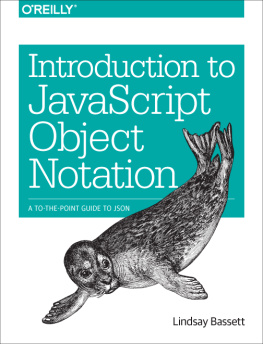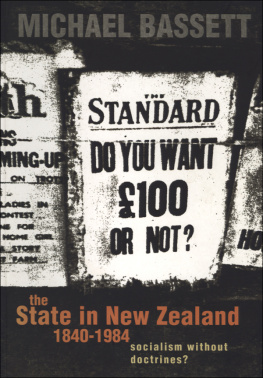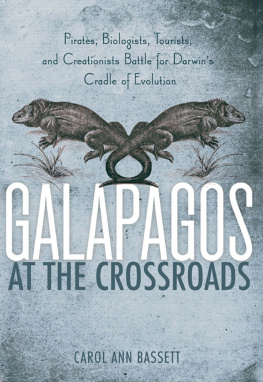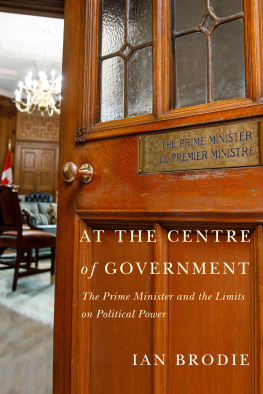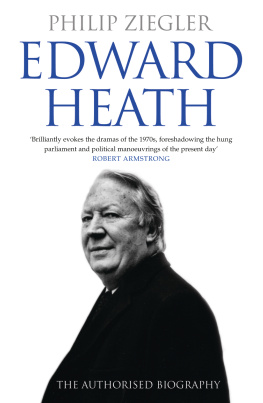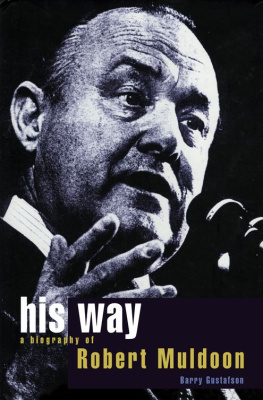Bassett - Sir Joseph Ward: a Political Biography
Here you can read online Bassett - Sir Joseph Ward: a Political Biography full text of the book (entire story) in english for free. Download pdf and epub, get meaning, cover and reviews about this ebook. City: New York;Neuseeland;New Zealand;Nouvelle-Zélande, year: 2013;1995, publisher: Auckland University Press, genre: Non-fiction. Description of the work, (preface) as well as reviews are available. Best literature library LitArk.com created for fans of good reading and offers a wide selection of genres:
Romance novel
Science fiction
Adventure
Detective
Science
History
Home and family
Prose
Art
Politics
Computer
Non-fiction
Religion
Business
Children
Humor
Choose a favorite category and find really read worthwhile books. Enjoy immersion in the world of imagination, feel the emotions of the characters or learn something new for yourself, make an fascinating discovery.

- Book:Sir Joseph Ward: a Political Biography
- Author:
- Publisher:Auckland University Press
- Genre:
- Year:2013;1995
- City:New York;Neuseeland;New Zealand;Nouvelle-Zélande
- Rating:3 / 5
- Favourites:Add to favourites
- Your mark:
- 60
- 1
- 2
- 3
- 4
- 5
Sir Joseph Ward: a Political Biography: summary, description and annotation
We offer to read an annotation, description, summary or preface (depends on what the author of the book "Sir Joseph Ward: a Political Biography" wrote himself). If you haven't found the necessary information about the book — write in the comments, we will try to find it.
Bassett: author's other books
Who wrote Sir Joseph Ward: a Political Biography? Find out the surname, the name of the author of the book and a list of all author's works by series.
Sir Joseph Ward: a Political Biography — read online for free the complete book (whole text) full work
Below is the text of the book, divided by pages. System saving the place of the last page read, allows you to conveniently read the book "Sir Joseph Ward: a Political Biography" online for free, without having to search again every time where you left off. Put a bookmark, and you can go to the page where you finished reading at any time.
Font size:
Interval:
Bookmark:
S IR J OSEPH W ARD (18561930) was the leading political figure during the forty-year life of the Liberal Party in New Zealand. He was a member of Ballances first Cabinet, twice Prime Minister and was still a Cabinet Minister at the time of his death in 1930.
This lively biography is the story of an ambitious first-generation New Zealander of Irish Catholic parents who spent more than half a century in local and central government politics, influencing the directions taken in many areas of New Zealand life. It contains much new material about Wards private business dealings, his flourishing Southland company, his bankruptcy and his remarkable rehabilitation. Michael Bassett reveals a genial, courteous, fast-talking man of vision who had nevertheless some difficulty adapting to a changing world; and he writes with the rare insight into political life of a former political practitioner.
COVER PAINTING:
Wellington from Kelbum 1888
by Christopher Aubrey
COVER DESIGN: Suellen Allen
Sir Joseph Ward
MICHAEL BASSETT
A Political Biography


First published 1993
This ebook edition 2013
Auckland University Press
University of Auckland
Private Bag 92019
Auckland 1142, New Zealand
www.press.auckland.ac.nz
Michael Bassett 1993
eISBN 978 1 86940 791 9
This book is copyright. Apart from fair dealing for the purpose of private study, research, criticism, or review, as permitted under the Copyright Act, no part may be reproduced by any process without the prior permission of Auckland University Press.
Distributed outside New Zealand by Oxford University Press
Publication is assisted by the Historical Branch of the Department of Internal Affairs


Caricature of Ward by David Low, 1915. Alexander Turnbull Library.

P ROLONGED PERIODS OF economic uncertainty, social change and wars have usually produced a political yearning for familiar leaders with predictable, sometimes even antiquated policies. In the 1990s many New Zealanders have been nostalgically hoping to bring back better times by implementing old, worn-out nostrums. In the early years of the century, before the age of television, politics the world over seemed to be dominated by men with fixed ideas who remained in political life, hoping for yet another shot at office. Balfour, Lloyd George and Churchill in Britain; Laurier and Mackenzie King in Canada; Smuts in South Africa; Billy Hughes in Australia; Ward and Nash in New Zealand, all had what today seem to have been overlong careers. Most ran out of ideas well ahead of ambition.
Joseph George Ward (18561930) had a career in public life lasting more than half a century. He was the longest-serving Cabinet minister in our history (twenty-three years and four months) and the only prime minister this century to win office on two separate occasions. He died as a Cabinet minister nearly four decades after first attaining the office. His last victory at the polls in 1928 was a triumph of old remedies at a time when new medicines were urgently needed. In 1890 Ward was present at the beginning of an era and he was still there as it drew to a close with the onset of the Great Depression. He served in New Zealands Parliament for thirty-seven years, a period surpassed by only four others.
Political longevity, however, is Wards least claim to recognition. There are many more important reasons why a biography of him is long overdue. He was the one constant factor in New Zealands political life in the period 18901919, where his irrepressible ambition obliged every other major player to keep a wary eye on his movements. For more than forty years he was constantly in the news. Even when out of Parliament between 1919 and 1925 his activities often commanded the attention of journalists. Ward managed to keep hope alive in Liberal breasts long after others had consigned his party to New Zealands dead past.
I cannot claim radically to have reinterpreted historians assessments of the later Ward. Any reasonable commentator would have to conclude that his political career went on far too long, that aspects of it bordered on farce and reflect poorly on the credulity of New Zealand voters at the time. I can claim, however, to have painted a much fuller picture of the earlier Ward. I freely admit to having fallen under the spell of this ebullient political magician. The modern infrastructure of New Zealand life that emerged from the governments of Ballance and Seddon was, to a great extent, Wards work. The rural economy and New Zealands transport and communication networks carried the direct imprint of his imagination. The civil service, in its size, method of appointment and conditions of retirement, was influenced much more by Ward than by any of his contemporaries. His contribution to the development of our modern social services was also considerable. He used the power of central government, and its funds, to develop several vital features of the modern health services. It is probably not too much to say that no other politician in our history has had a greater impact on so many aspects of the countrys development. Holding as he did nearly every portfolio of state, few areas escaped his energy, enthusiasm or stubborn determination. In new countries struggling to establish themselves, confidence radiating from high places could often be as important as specific policy initiatives. No one equalled Ward in that department. The Weekly Press commented in October 1907 that Ward has one of the brightest and sunniest natures that man was ever blest with. Hope, hope, bright beautiful hope is through him warp and woof, and his is like the central sun of a small universe, radiating it in every direction felt for him in earlier times reflected so positively on the Ministry. It is not surprising that Ward, who projected hope when all about him seemed to have lost theirs, was capable of appealing one last time to the voters in 1928.
My book makes no claim to be error free. While a vast quantity of material, some of it in unlikely places, has been turned over in the hunt for information about Sir Joseph Ward, points in the book, however, where I have had to resort to my own political intuition born of experience and similar problems to suggest explanations for Wards actions.
In a work that took nearly ten years to complete due to the intervention of my own ministerial career, many debts were incurred. By far the largest is to my wife Judith, who frequently helped with research, read drafts of the book and made many insightful comments about Ward and his style of political operation, sometimes comparing them (to Wards advantage) with my own. Our ministerial house in the gardens of what had been Awarua House in Tinakori Road, Wellington, gave us many opportunities to walk about the groundswhich in turn inspired me when Minister of Internal Affairs, 198790, to restore the old relic that has become todays Premier House.
Particular mention must be made of the constant encouragement given this project by Professor Sir Keith Sinclair, Professors John Salmond, Erik Olssen, Raewyn Dalziel and Bruce Clayton, and Dr Jock Phillips; the Rt Hons Mike Moore, Frank OFlynn and Jonathan Hunt; the Hon. Bill Jeffries and the Hon. Sir David Beattie. Sir Keith Sinclair kindly read the manuscript and made a number of helpful comments. Heather Abbott typed many of the early drafts of the book, assisted by Mrs Millicent Nicholson. Dr Sandra Wallace of London, Ontario helped with the preparation of the index. Both Clive Lind and the late Aubrey Begg of Invercargill gave generously of their advice, and it is a source of disappointment to me that Aubrey, who was a valued parliamentary colleague and MP for Awarua between 1972 and 1975, did not live to see the finished work. Several descendants of Sir Joseph Ward, most notably the late Jim Ward (Sir Cyril Wards second son) of Christchurch and his cousin Tony Wood (Eileens son) of Heretaunga, were happy to be interviewed and lent me family material, as did Joan, Lady Ward, widow of the third baronet. John Ward of Christchurch, Sir Cyrils youngest son, deserves special mention. His help and encouragement never faltered. Through him I was privileged to meet Mrs Theresa Corry, Sir Josephs granddaughter and Sir Cyrils only daughter, as well as Mrs Myrcine Tripp, Gladstone Wards elder daughter. Mr Allan Fisher of Otautau gave me access to the papers of his grandfather, John Fisher. Four students also helped with newspaper research at various times: Brian Mason, Michael Barker, Stephen Rainbow and Bob Johnston. The staff of the General Assembly Library, where I spent many hundreds of hours poring over newspapers, as well as the former Parliamentary Librarian Jim Wilson, were unfailingly helpful with my project, often bringing matters relating to Ward to my attention. I must also thank the staff of the Manuscript Room at the Alexander Turnbull Library and pay a special tribute to Ray Grover and Eamonn Bolger of the National Archives in Wellington. Claire Dawe and her successor, Pauline Porteous, of the Westpac Bank Archives greatly assisted my sifting of bank records relating to Wards financial rehabilitation, and similar help was given by Debbie Monigatti and Doris Gardiner of the National Bank. Verna Mossong helped with shipping records. John Bird of the District Land Registry in Invercargill helped me piece together Wards complex series of land holdings. Drs Rory Sweetman and Paul Baker of Auckland, Bert Roth of Mt Eden, Harold Nicholson of Ponsonby, Bruce Paton of Wellington, Drs Gavin McLean and A. C. Wilson of Wellington, Mrs Mary Boyd of Wellington, Antony Alpers of Christchurch and my old friend the late Professor James Holt, who died barely a year after the project started, all provided useful pieces of information for me at various stages. In the United Kingdom Dr Elizabeth Hallam-Smith of the Public Records Office found several references to Ward that would otherwise have eluded my notice. Dr Austin Mitchell MP located some photographs, and Dr David Clark MP made helpful comment about the English milieu in which Ward so loved to mix. The Earl of Glasgow and his cousin Sir Charles Fergusson generously allowed me access to papers and diaries in their possession. Dr Howard Ross of the University of Aucklands Computer Centre helped locate several chapters that mysteriously disappeared from my computer discs. The New Zealand History Trust gave me a grant to facilitate travel to the United Kingdom and Ireland in 1991 to check additional sources. This book could not have been written without the generous assistance of these people and institutions.
Next pageFont size:
Interval:
Bookmark:
Similar books «Sir Joseph Ward: a Political Biography»
Look at similar books to Sir Joseph Ward: a Political Biography. We have selected literature similar in name and meaning in the hope of providing readers with more options to find new, interesting, not yet read works.
Discussion, reviews of the book Sir Joseph Ward: a Political Biography and just readers' own opinions. Leave your comments, write what you think about the work, its meaning or the main characters. Specify what exactly you liked and what you didn't like, and why you think so.

